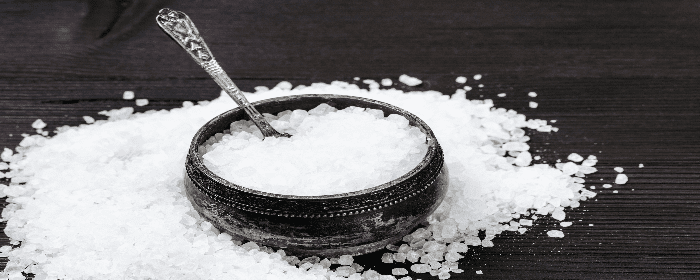Experts have been researching the potential causes of dementia for quite some time. Like many conditions, it’s believed to result from a combination of lifestyle, hereditary, and environmental factors. Recently, however, there’s been one dietary factor catching the attention of researchers: excess salt. Discover the connection between table salt and dementia risk below.
Dietary Salt & Cognitive Impairment
According to research published in October 2019 in Nature Neuroscience, a link has been established between excessive salt intake and elevated dementia risk. While experts have long associated poor cerebrovascular function with high salt diets, this new study suggests high sodium levels don’t just restrict blood flow to the brain; they can actually affect tau protein levels in the brain, too.
Tau supports neurons under normal circumstances. It does so by stabilizing microtubules, the structures which carry nutrients to neurons. When tau becomes unstable, it can build up in the brain. The buildup of tau is a hallmark characteristic of Alzheimer’s.
In the rodent study, scientists used nitric oxide to stabilize the tau, which in turn led to normal cognitive function – even though blood flow to the brain was still restricted. This suggests that the tau buildup caused by salt – and not the restricted blood flow – is the true causative agent behind dementia.
Reducing Salt Intake
Based on these findings, experts are now urging individuals to be mindful of their salt intake. Although further research needs to be completed to confirm the connection between sodium and dementia in humans, reducing salt consumption is a good idea anyhow. Excess sodium can accumulate in the blood when the kidneys can no longer keep up with it, which causes the body to hold onto excess water. This, in turn, increases fluid and blood volume, which puts added pressure on the heart and blood vessels. As a result, the risk for blood pressure, heart attack, and stroke increases.
The American Heart Association recommends adults take in no more than 2,300 mg of salt per day, but suggests aiming for an ideal limit of 1,500 mg. The majority of sodium comes from packaged and prepared foods, so making your own meals at home with whole ingredients such as fresh vegetables, whole grains, and lean protein is one of the best ways to reduce salt intake.


 St. Petersburg, Florida
St. Petersburg, Florida
